It’s a land of beauty and endless opportunities, says a Thai billionaire after an epic journey to Russia’s Far East
by Maximilian Wechsler
by Maximilian Wechsler
| VIKROM Kromadit is not your average billionaire. As much adventurer as entrepreneur, he is the founder and CEO of AMATA Corporation, one of Thailand’s leading industrial estate developers. A title he takes no less seriously is that of ‘Emissary of Goodwill and Friendship’ given by the Thai government. He was appointed to promote bilateral ties at the people-to-people level between Thailand and other countries along the route of his ‘Caravan Asia’, an epic journey undertaken by Mr Vikrom and 20 people in the summer of 2013. The caravan of mobile homes made their way from Bangkok to Lao and China and on to Vladivostok on the Pacific coast of the Russian Federation. From there the caravan took a route through unspoilt wilderness and the Siberian cities of Irkutsk, Kransoyarsk and Novosibirsk. After a side trip to Kazakhstan, the adventurers returned to Bangkok by way of China and Myanmar. The door to Mr Vikrom’s office on the 6th floor of the Kromadit building on New Petchaburi Road opens onto a large indoor garden fitted with Thai-style wooden houses. Inside one of the houses, with Deng a large lovely dog that he says is ‘like a bodyguard’ lying close by, Mr Vikrom talked about his experiences and what compelled him to take the ultimate road trip. Actually, he said, this was the third Asia Caravan; the first was the GMS Caravan 2011 (Greater Mekong Subregion) and second in 2012 was through China and Mongolia. “I first learned about Siberia when I was just a kid. I was fascinated for some reason and I really wanted to know how it looks and what it’s like. I learned about Lake Baikal in southern Siberia. It’s the largest freshwater lake in the world. If you learn about some place when you are small you naturally want to see it when you get older. “Russia always seemed so far away from Thailand, so I was excited when I had the chance to go to Moscow for the first time in 1982. I went with a Thai delegation that included former Foreign Minister and Chief Air Marshal Siddhi Savetsila,” said Mr Vikrom, who has written several books that have been translated into eight languages and sold around seven million copies. |
Caravan Asia 2013
“In 2013 we started off in Bangkok, drove through Lao and then entered China. Everywhere we went I was doing my best to promote good relations with Thailand. I was like an ambassador at large. I made speeches at seminars and other events in every country we visited. But the main reason for the caravan was that I wanted to see something different. And during my two-month drive through Siberia, I was not disappointed. Not only the landscapes but also the people in Siberia are different in comparison with people in the western part of the Russian Federation. They seemed very humble and friendly, especially when they found out I was from Thailand.
“In general, Russians have a very good attitude toward Thailand, and I think this is partly because we share a long history of good relations. When I was at a seminar in Moscow I asked the crowd: ‘How many people would like to visit Thailand?’ Everyone in the room said they would like to go, and about half said they had already been and would like to go again. This made me happy. I feel that the response to Thai people is warmer in Russia.
“I still remember talking in 1982 with two Russian ministers who were looking after the economy in Russia’s Far East. They called the Thai and Russian peoples ‘the best of friends’. These words came back to me often when I was on the road in 2013.
“In 2013 we started off in Bangkok, drove through Lao and then entered China. Everywhere we went I was doing my best to promote good relations with Thailand. I was like an ambassador at large. I made speeches at seminars and other events in every country we visited. But the main reason for the caravan was that I wanted to see something different. And during my two-month drive through Siberia, I was not disappointed. Not only the landscapes but also the people in Siberia are different in comparison with people in the western part of the Russian Federation. They seemed very humble and friendly, especially when they found out I was from Thailand.
“In general, Russians have a very good attitude toward Thailand, and I think this is partly because we share a long history of good relations. When I was at a seminar in Moscow I asked the crowd: ‘How many people would like to visit Thailand?’ Everyone in the room said they would like to go, and about half said they had already been and would like to go again. This made me happy. I feel that the response to Thai people is warmer in Russia.
“I still remember talking in 1982 with two Russian ministers who were looking after the economy in Russia’s Far East. They called the Thai and Russian peoples ‘the best of friends’. These words came back to me often when I was on the road in 2013.
On the road in Siberia
Our group included an interpreter, which made things a lot easier. The weather was perfect, but of course, the trip would not have been possible in the winter. Temperatures can reach 30ºC below zero. I would like to go back in the winter with the right preparations.
“All in all I really enjoyed the trip and I was very comfortable living and sleeping in my mobile home. It was very well equipped, with a good kitchen and an office. None of the vehicles had any mechanical problems on the way. Most, but not all of the roads are very well maintained. These types of vehicles consume a huge amount of fuel, and I had to plan carefully to be sure we didn’t run out. I also had to make sure we had all the food and other provisions we needed.
“What I really liked about Siberia was the camping. We parked our vehicles at some very beautiful locations. We could stay anywhere along the road. For security, we had three Russian military bodyguards following us. They were real professionals. As it turned out they weren’t really needed, but it seemed like a good idea because we weren’t sure what Siberia would be like. It proved to be very safe in all aspects, and that goes for every country I have travelled in so far.
“I was very happy in the mobile home but I did make a four-hour journey on the Trans-Siberian railway just to get the feel of it. I really loved it, just sitting back and watching the magnificent countryside out the window. I would highly recommend the train to anyone. I am thinking that I should make the trip from Moscow to Vladivostok. Maybe I will do it next summer,” Mr Vikrom said.
Basking in nature and friendship
Mr Vikrom was impressed with the warmth shown to him by everyone he met in Siberia and says he made many good friends on his journey. He explained that there are basically two groups of people in Siberia: the natives who have been there for thousands of years; and Russians, who started coming from the west in the 17th century. “The Russians don’t appear to be any different from the indigenous locals they are very well integrated into the population. However, they are very different from Russians you meet in Moscow.
“Probably the most fascinating aspect of Siberia for me was the great natural beauty. I am very keen on nature. Everywhere along the route, tall trees towered above us. One of the highlights was Altai in southern Siberia. It reminded me of Switzerland.
“Siberia is bigger than Canada, America, China and India. It is about 26 times larger than Thailand, but the population is only about 40 million. It is so big and so rich in natural resources, truly a land of great potential. There are many areas of opportunity, for example in agriculture. The soil is so rich and there is so much of it. Generally speaking, you can grow crops four or five months a year.
| “I met with some Russian government officials in Siberia, including ministers and governors. They were all very nice, whether it was a minister or governor, and we had friendly discussions. They all seemed knowledgeable about Thailand “I visited a few universities and I found them to be excellent. Some people might be surprised to learn that there are many Thais studying in Siberia. Some came to see me when we were in Omsk.” Asked about business opportunities for Thai companies in Siberia, Mr Vikrom said: “Siberia is in the North Asia and we are in the South. We have different products and therefore we can trade. We can do business. “There is also a lot of opportunity in terms of tourism. Thais are used to the tropics, but many enjoy cooler temperatures sometimes. It makes sense for Thais to visit Siberia to experience a different climate, just like Russian tourists do when they come to Thailand. I would recommend to Thai people that they visit Siberia during April and May when the weather is hottest in Thailand. |
“It seems to me that Thai people and others in Southeast Asia don’t know much about Russia and Siberia. If we visit people in very different lands it will improve understanding and also create opportunity.”
What impressed Mr Vikrom most about the people in Siberia was their simplicity and basic values. “They aren’t interested in luxury items. I came to this conclusion after meeting with ordinary people there. They keep very clean and tidy homes. From the outside, some homes might look old but on the inside, they are nicely decorated, well arranged and above all, clean. This applies not only to private homes but also to restaurants, hotels, schools and other places.
“Like all Russians, Siberians enjoy life. They love to eat and drink and love to talk if they know you well. They are active and very creative. Again, I felt that when people learned I was Thai they immediately became very friendly.
“My experiences of Siberia were overwhelmingly positive. The only real negative is the infrastructure is not yet up to par if Siberia is to reach its enormous potential. Driving across Siberia was like a dream come true, and I am already planning the next trip.”
What impressed Mr Vikrom most about the people in Siberia was their simplicity and basic values. “They aren’t interested in luxury items. I came to this conclusion after meeting with ordinary people there. They keep very clean and tidy homes. From the outside, some homes might look old but on the inside, they are nicely decorated, well arranged and above all, clean. This applies not only to private homes but also to restaurants, hotels, schools and other places.
“Like all Russians, Siberians enjoy life. They love to eat and drink and love to talk if they know you well. They are active and very creative. Again, I felt that when people learned I was Thai they immediately became very friendly.
“My experiences of Siberia were overwhelmingly positive. The only real negative is the infrastructure is not yet up to par if Siberia is to reach its enormous potential. Driving across Siberia was like a dream come true, and I am already planning the next trip.”
Two cycles of Thai-Russian friendship
|
This year the Kingdom of Thailand and the Russian Federation celebrate 120 years of diplomatic relations. In an exclusive interview with the BigChilli, Russian Ambassador to Thailand, H.E. Kirill Barsky provided some perspective on this diplomatic milestone. “It is remarkable that our two countries have been friends for such a long time,” said the ambassador.
“It is also very symbolic because it adds up to two cycles of 60 years, which is revered by Oriental peoples as a complete life cycle. So the friendship between our two countries spans two life cycles, and I am sure we will continue to be friends through many more cycles. The origin of the friendship is a very interesting story and one that is dear to hearts of millions of Thai people.” The story began when the Crown Prince of the Russian Empire, Nicholas Alexandrovich, visited the Court of King Rama V (King Chulalongkorn) while on his epic Eastern Journey in 1890-91. The trip included around 22,000 kilometres that took the Crown Prince to Northern Africa and India before a long homeward stretch that brought him to Japan and finally to Vladivostok in north-eastern Russia. Siam was a major stopover for the voyagers in March 1891. “King Chulalongkorn was 15 years older than Crown Prince Nicholas, but both were very progressive and shared a lot of the same values. The historical record shows that the two young men established a very good personal relationship. This was reflected in a visit by King Chulalongkorn to St Petersburg six years later when Nicolas was Emperor of Russia,” said the ambassador. |
|
“In 1897 King Rama V made the strategic decision to visit European capitals to demonstrate that the Kingdom of Siam was independent and powerful and wanted to be accepted by them on friendly and equal terms. At the time France and the Great Britain were in the process of finishing the colonial conquest of Southeast Asia. Siam was the only remaining independent country in the region. King Rama V decided to make St Petersburg his first destination and to use his friendship with Emperor Nicholas II to strengthen his position with other European powers.
“The strategy worked. He was received as an equal partner by the emperor. The famous photograph of King Rama V sitting next to Emperor Nicholas II at the Peterhof Grand Palace near St Petersburg was published immediately in magazines across Europe (photo). Historians believe that this wise move by King Rama V played a significant role in keeping his nation independent and also in changing European attitudes toward Siam. |
“If you read the correspondence between Nicholas II and King Rama V - it is all public now in archived documents - they called each other brothers. The fact that Nicholas II ‘adopted’ Prince Chakrabongse, a son of King Rama V, is also very symbolic. The Prince called Nicolas II ‘father’ in his letters to him.
“Russia and Thailand are now collaborating on a commemorative stamp with the famous photo of the two monarchs in its centre. The stamp will be issued in both countries this coming July,” Mr Barsky announced, adding that a famous Thai sculptor is working to present the iconic scene in stone.
“In 2007 Her Majesty Queen Sirikit was the guest of honour at another reception held at the Peterhof Grand Palace to celebrate the 110th anniversary of Russian-Thai relations. The event was orchestrated to recreate the setting in which King Rama V was the guest of honour. The interior of the ballroom was decorated the same, the dinner menu was the same and the cutlery, utensils and even the waiters’ uniforms were the same as those worn 110 years before. Her Majesty Queen Sirikit has remarked that the event produced a very powerful impression on her.”
Modern diplomatic relations
“Over the years there have been ups and downs in our relations, and of course we were on different sides in the Cold War period, but there have never been any serious conflicts or hostilities between our two countries. Relations have been on the upswing since 1988 when then Prime Minister General Prem Tinsulanonda visited the Soviet Union. This was followed by visits from His Royal Highness Crown Prince Maha Vajiralongkorn in 1989 and Her Royal Highness Princes Maha Chakri Sirindhorn in 1993.
“In recent years our relations and cooperative efforts have improved dramatically. This is manifested in an intensive political dialogue, growing economic and trade cooperation and broadened cultural exchanges, especially in the areas of education and tourism. Thailand has become a top destination for millions of Russian tourists in the past 15 years.
“I am especially happy that with the absence of any political problems we are finding we have more and more in common. This is shown by the mutual understanding of the Russian President Vladimir Putin and Thai Prime Minister General Prayut Chan-o-cha to strive for a strategic partnership between our two nations in the future.
“Russia belongs to the European civilisation, but at the same time it is a civilisation unto itself, “said Mr Barsky. “We share the Christian religion and certain historical roots and anthropogenic types with Europe, but the culture is unique because over many centuries we have imported elements from many other cultures. This is because Russia lies in the centre of the Eurasian land mass and has been subjected to all kinds of exchanges, both peaceful and violent. Russia was conquered by many countries and tribes and we fought always to be free. We have had so many wars throughout our history. Finally, we liberated ourselves from all rivals.”
Development of Siberia
Ambassador Barsky said that an increasing number of Thais are interested in Russia as a tourist destination. They include Vikrom Kromadit, who in the summer of 2013 led a caravan of luxury mobile homes across Siberia. The ambassador applauded Mr Vikrom for letting his adventurous spirit lead him to the beautiful and remote region. He then gave some background on some past and present major development projects in Russia’s northern wilderness.
In 1891, the same year that Crown Prince Nicholas visited King Chulalongkorn, Russia embarked on a very ambitious project to connect the European part of Russia -which includes St Petersburg and Moscow - with the Far East of Russia, the city of Vladivostok, by railway. The Russian government very skillfully tackled the challenges presented by the vastness of Russia and completed this important and massive infrastructure project in 1916. The Trans-Siberian railway stretches 9,288 kilometres, making it the longest railway on Earth.
“It absorbed a huge amount of money from government coffers and modernization of the railway is a never-ending priority. In 2002 the government completed the electrification of the whole Trans-Siberian railways. This crucial land bridge connects the Asia-Pacific region with Europe. The cargo transit capacity is 100 million tonnes per year. The Pacific coast city of Vladivostok at the eastern terminus of the Trans-Siberian railway is becoming a hub of the Asia-Pacific region.
“We are expanding the port of Vladivostok to accommodate shipments of Siberian natural gas to our overseas partners in liquid form. The gas will reach Vladivostok via a pipeline now under construction as part of the ‘The Power of Siberia’ project. We are also expanding 11 other seaports along the Pacific, but Vladivostok is the main one.
“Energy is one of Russia’s greatest strengths, and President Putin has developed a major initiative to take advantage of this, called the Asian Energy Super Ring. The ring will connect Russian energy supply centres with storage facilities in Japan, South Korea and China.
“One of our major projects in the Siberian region is the construction of the Vostochny Space Launching Station, which is almost completed. The big new city of Tsiolkovsky is being built close by. Another important project is the development of nine new special economic zones called Territories of Priority Development.
Under the Social Economic and Development Program for the Far East and Baikal region for 2014-2025, the government is allocating a budget of US$9 billion and we expect to attract an additional US$13 billion from private investment. The project aims to build 20 new airports and a number of new land roads, and create 400,000 new jobs. Ultimately the goal is to provide resources and incentives to enlarge the population of the Far East from the current six million to 11 million people.
“Because of the gorgeous landscapes, Siberia is attracting a growing number of tourists. The taiga forest covers thousands of square kilometres and encompasses magnificent rivers and mountain ranges. The Pacific coast of Russia is amazing. Vladivostok is cold in the winter but in summer time it is a paradise. In the far north is Kamchatka, a land of volcanoes which is a favourite among ‘extreme tourists’. I want to invite the people of Thailand to come to Russia. They may not be able to take an extended tour as Mr Vikrom did, but they will find that a trip on the Trans-Siberian railway is an experience one never forgets.”
“Russia and Thailand are now collaborating on a commemorative stamp with the famous photo of the two monarchs in its centre. The stamp will be issued in both countries this coming July,” Mr Barsky announced, adding that a famous Thai sculptor is working to present the iconic scene in stone.
“In 2007 Her Majesty Queen Sirikit was the guest of honour at another reception held at the Peterhof Grand Palace to celebrate the 110th anniversary of Russian-Thai relations. The event was orchestrated to recreate the setting in which King Rama V was the guest of honour. The interior of the ballroom was decorated the same, the dinner menu was the same and the cutlery, utensils and even the waiters’ uniforms were the same as those worn 110 years before. Her Majesty Queen Sirikit has remarked that the event produced a very powerful impression on her.”
Modern diplomatic relations
“Over the years there have been ups and downs in our relations, and of course we were on different sides in the Cold War period, but there have never been any serious conflicts or hostilities between our two countries. Relations have been on the upswing since 1988 when then Prime Minister General Prem Tinsulanonda visited the Soviet Union. This was followed by visits from His Royal Highness Crown Prince Maha Vajiralongkorn in 1989 and Her Royal Highness Princes Maha Chakri Sirindhorn in 1993.
“In recent years our relations and cooperative efforts have improved dramatically. This is manifested in an intensive political dialogue, growing economic and trade cooperation and broadened cultural exchanges, especially in the areas of education and tourism. Thailand has become a top destination for millions of Russian tourists in the past 15 years.
“I am especially happy that with the absence of any political problems we are finding we have more and more in common. This is shown by the mutual understanding of the Russian President Vladimir Putin and Thai Prime Minister General Prayut Chan-o-cha to strive for a strategic partnership between our two nations in the future.
“Russia belongs to the European civilisation, but at the same time it is a civilisation unto itself, “said Mr Barsky. “We share the Christian religion and certain historical roots and anthropogenic types with Europe, but the culture is unique because over many centuries we have imported elements from many other cultures. This is because Russia lies in the centre of the Eurasian land mass and has been subjected to all kinds of exchanges, both peaceful and violent. Russia was conquered by many countries and tribes and we fought always to be free. We have had so many wars throughout our history. Finally, we liberated ourselves from all rivals.”
Development of Siberia
Ambassador Barsky said that an increasing number of Thais are interested in Russia as a tourist destination. They include Vikrom Kromadit, who in the summer of 2013 led a caravan of luxury mobile homes across Siberia. The ambassador applauded Mr Vikrom for letting his adventurous spirit lead him to the beautiful and remote region. He then gave some background on some past and present major development projects in Russia’s northern wilderness.
In 1891, the same year that Crown Prince Nicholas visited King Chulalongkorn, Russia embarked on a very ambitious project to connect the European part of Russia -which includes St Petersburg and Moscow - with the Far East of Russia, the city of Vladivostok, by railway. The Russian government very skillfully tackled the challenges presented by the vastness of Russia and completed this important and massive infrastructure project in 1916. The Trans-Siberian railway stretches 9,288 kilometres, making it the longest railway on Earth.
“It absorbed a huge amount of money from government coffers and modernization of the railway is a never-ending priority. In 2002 the government completed the electrification of the whole Trans-Siberian railways. This crucial land bridge connects the Asia-Pacific region with Europe. The cargo transit capacity is 100 million tonnes per year. The Pacific coast city of Vladivostok at the eastern terminus of the Trans-Siberian railway is becoming a hub of the Asia-Pacific region.
“We are expanding the port of Vladivostok to accommodate shipments of Siberian natural gas to our overseas partners in liquid form. The gas will reach Vladivostok via a pipeline now under construction as part of the ‘The Power of Siberia’ project. We are also expanding 11 other seaports along the Pacific, but Vladivostok is the main one.
“Energy is one of Russia’s greatest strengths, and President Putin has developed a major initiative to take advantage of this, called the Asian Energy Super Ring. The ring will connect Russian energy supply centres with storage facilities in Japan, South Korea and China.
“One of our major projects in the Siberian region is the construction of the Vostochny Space Launching Station, which is almost completed. The big new city of Tsiolkovsky is being built close by. Another important project is the development of nine new special economic zones called Territories of Priority Development.
Under the Social Economic and Development Program for the Far East and Baikal region for 2014-2025, the government is allocating a budget of US$9 billion and we expect to attract an additional US$13 billion from private investment. The project aims to build 20 new airports and a number of new land roads, and create 400,000 new jobs. Ultimately the goal is to provide resources and incentives to enlarge the population of the Far East from the current six million to 11 million people.
“Because of the gorgeous landscapes, Siberia is attracting a growing number of tourists. The taiga forest covers thousands of square kilometres and encompasses magnificent rivers and mountain ranges. The Pacific coast of Russia is amazing. Vladivostok is cold in the winter but in summer time it is a paradise. In the far north is Kamchatka, a land of volcanoes which is a favourite among ‘extreme tourists’. I want to invite the people of Thailand to come to Russia. They may not be able to take an extended tour as Mr Vikrom did, but they will find that a trip on the Trans-Siberian railway is an experience one never forgets.”

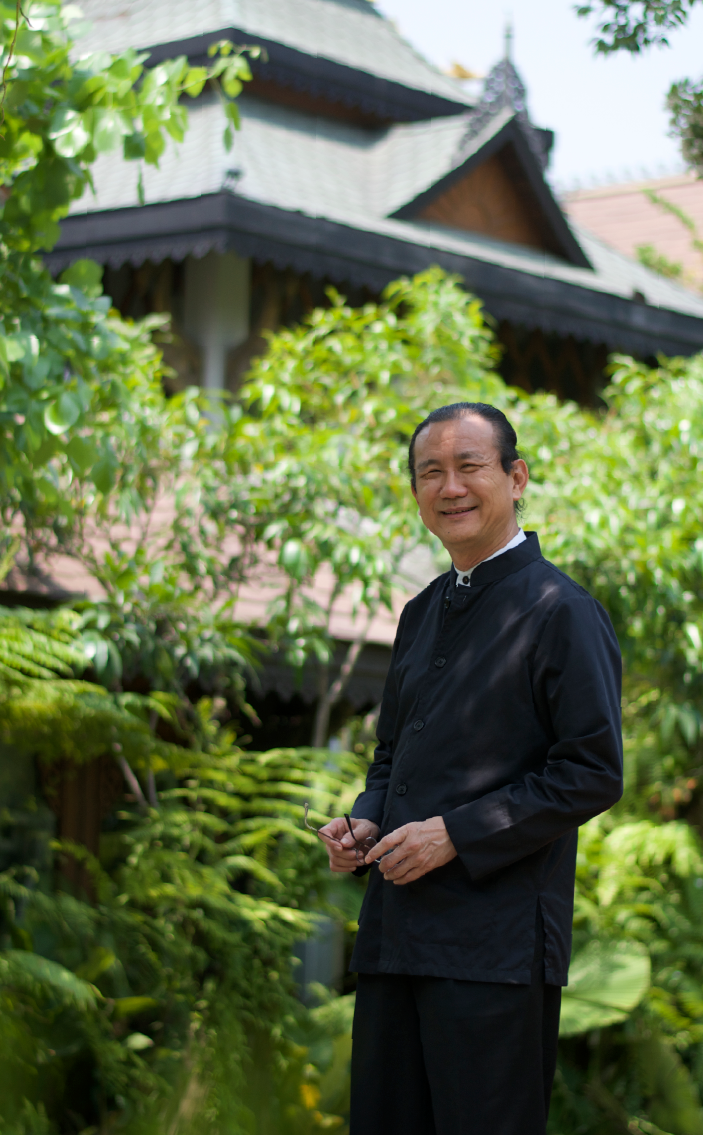
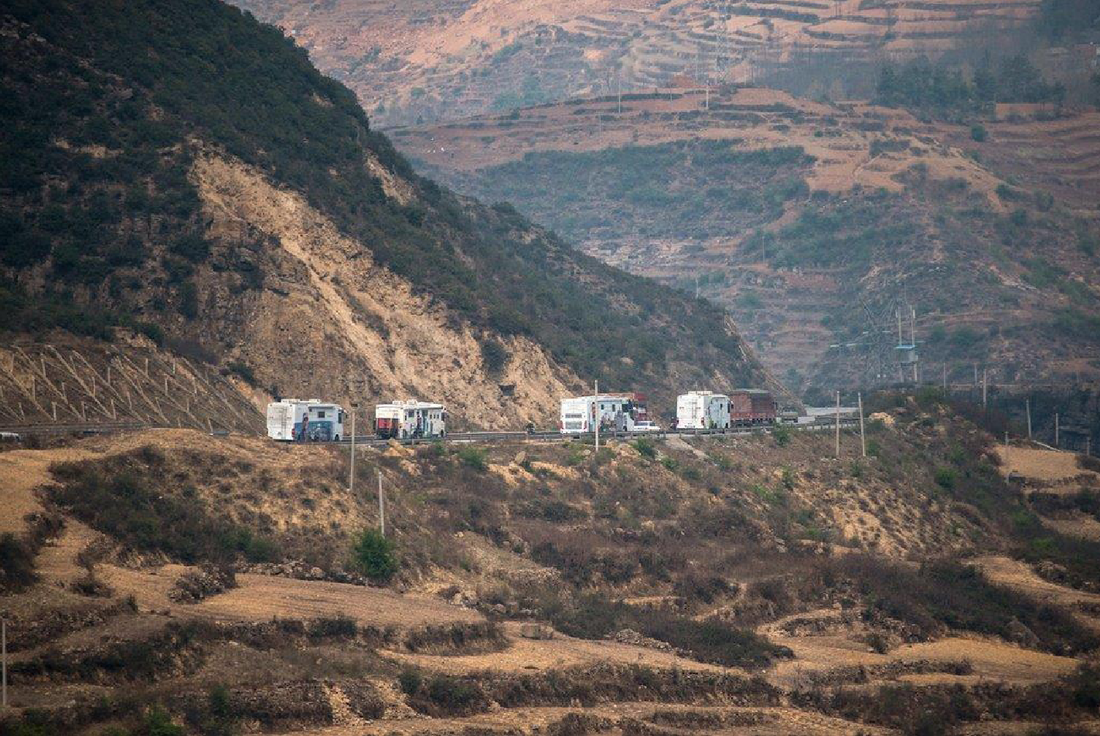
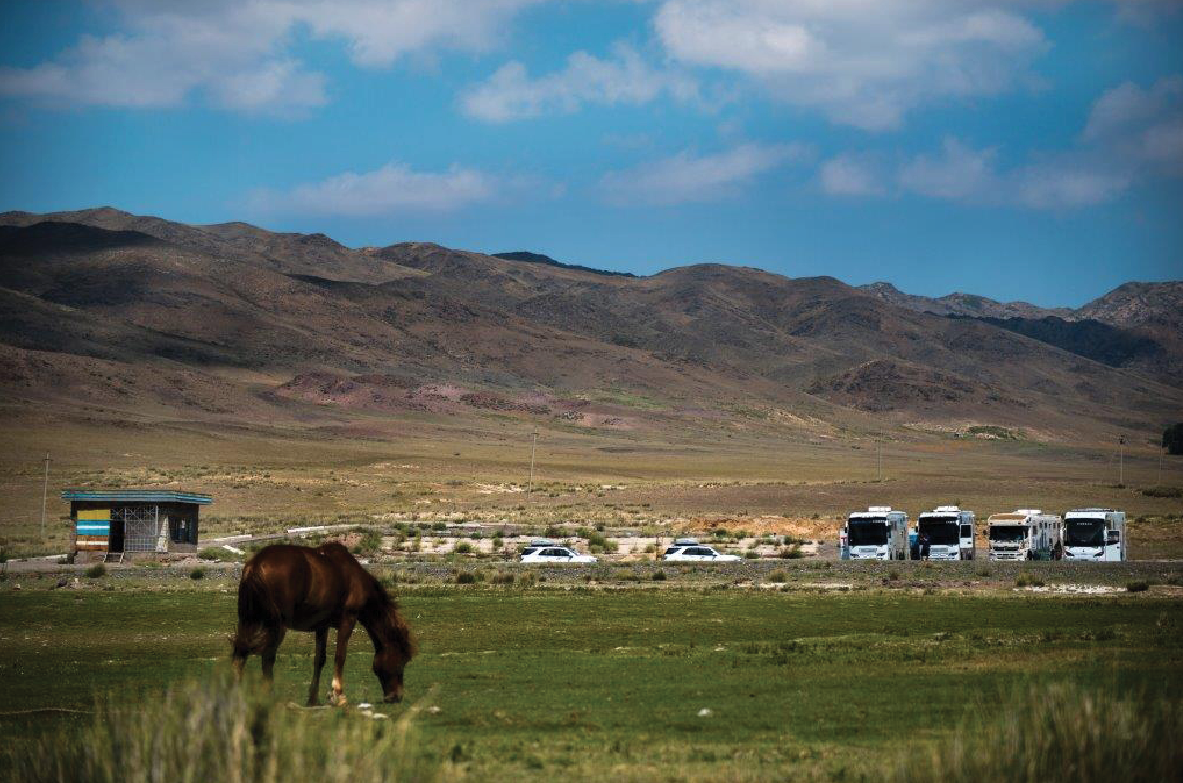
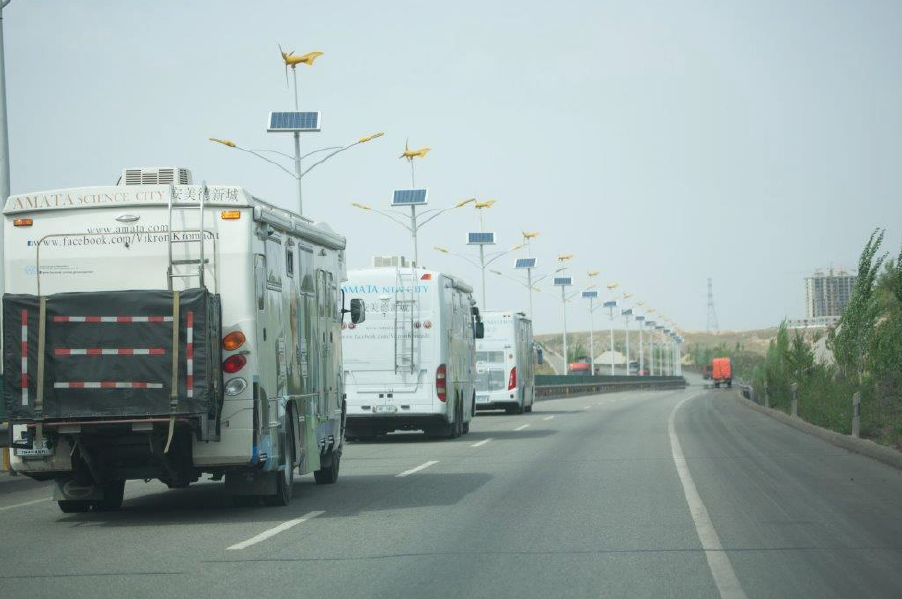
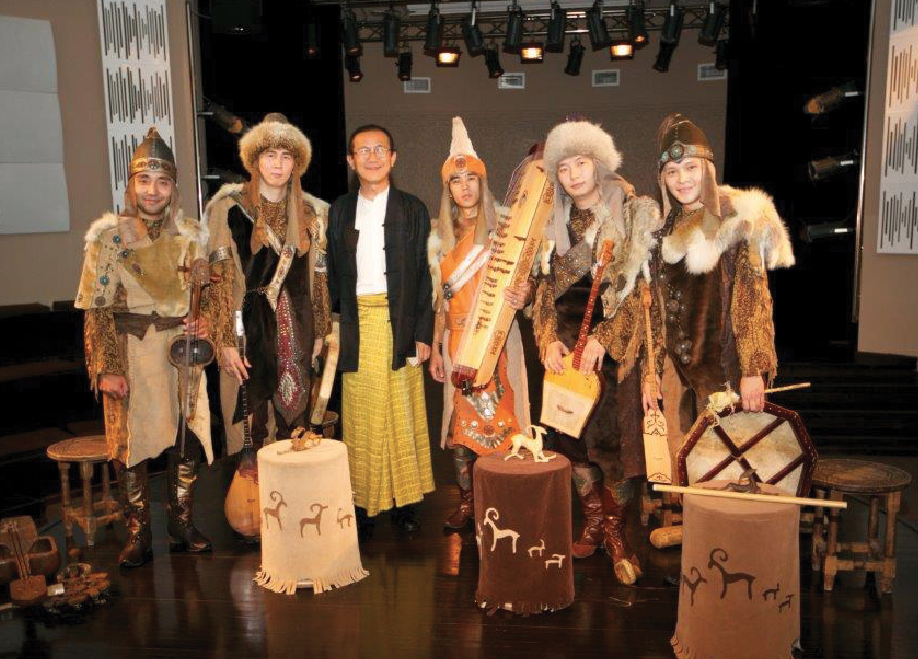
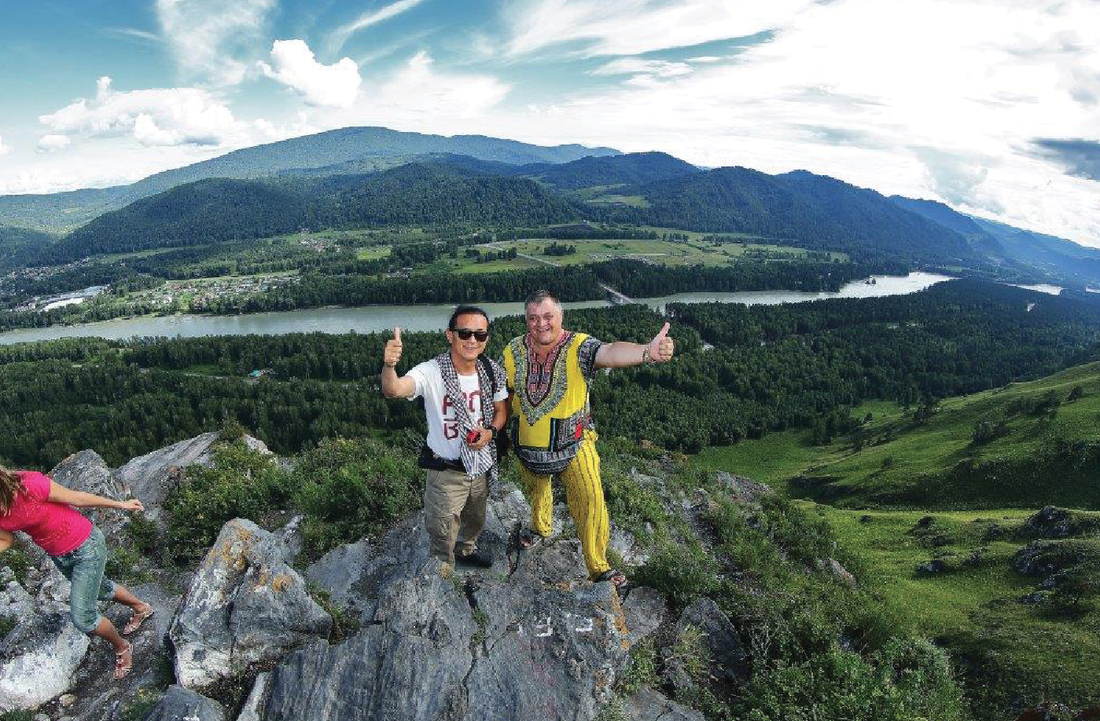
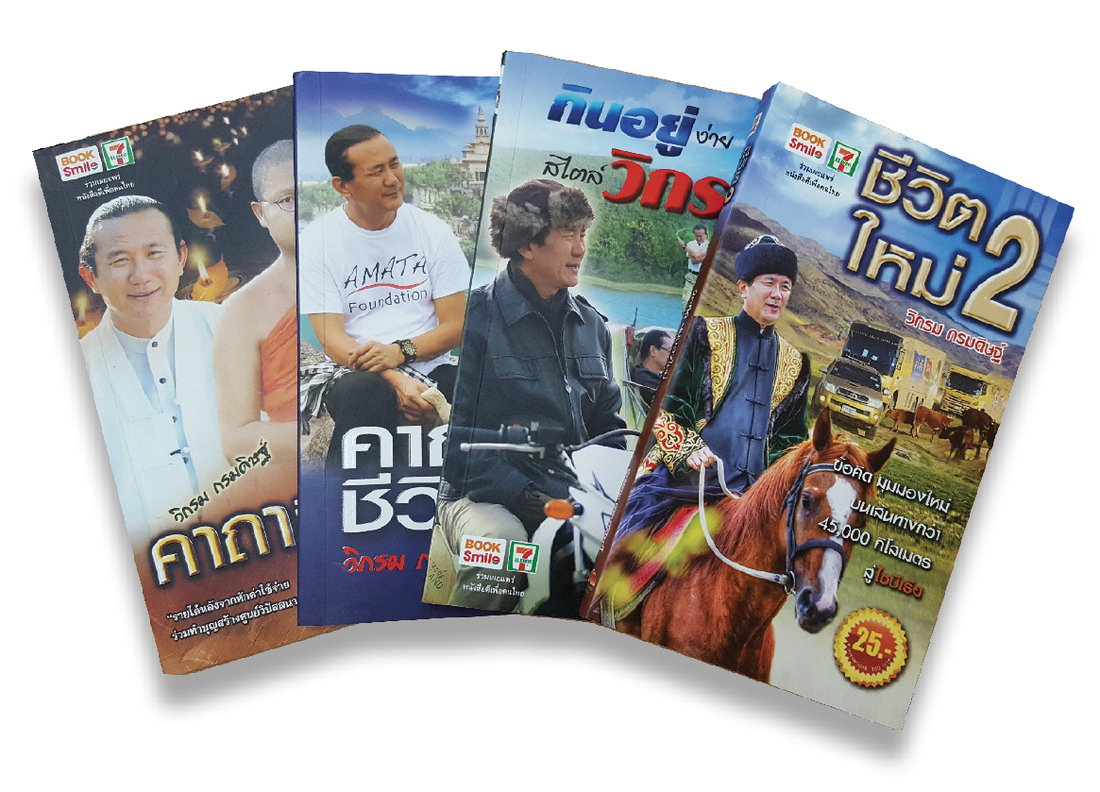
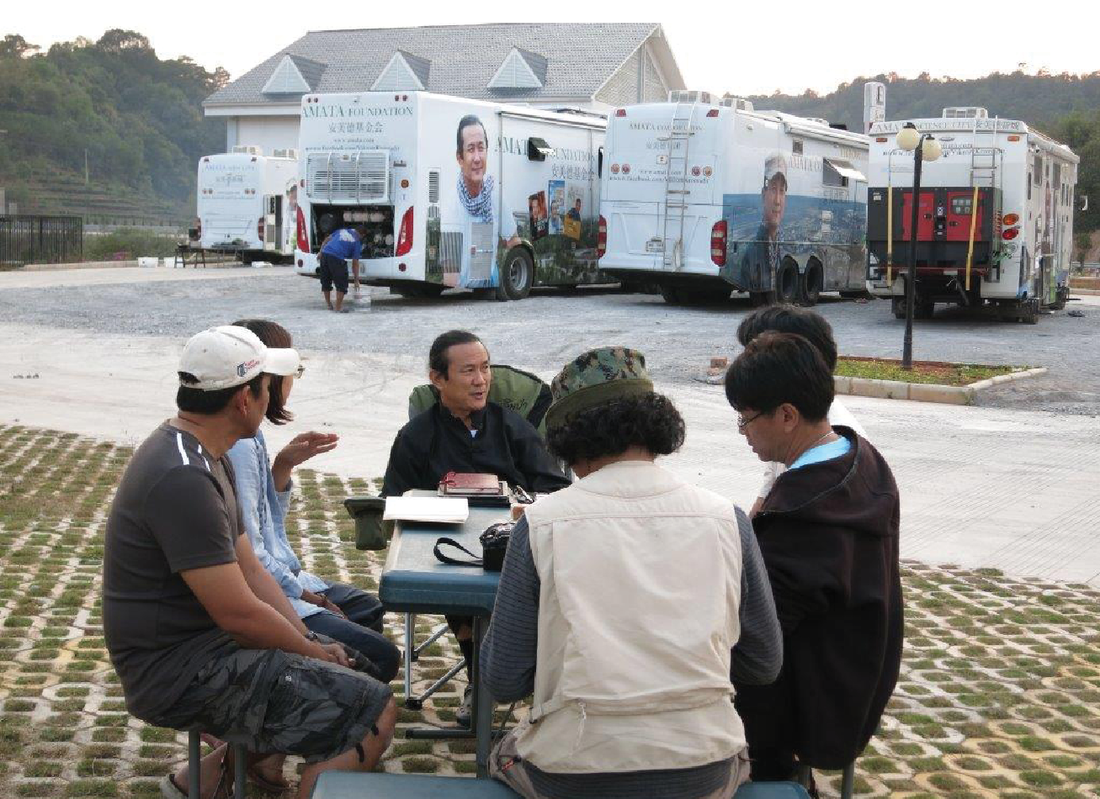
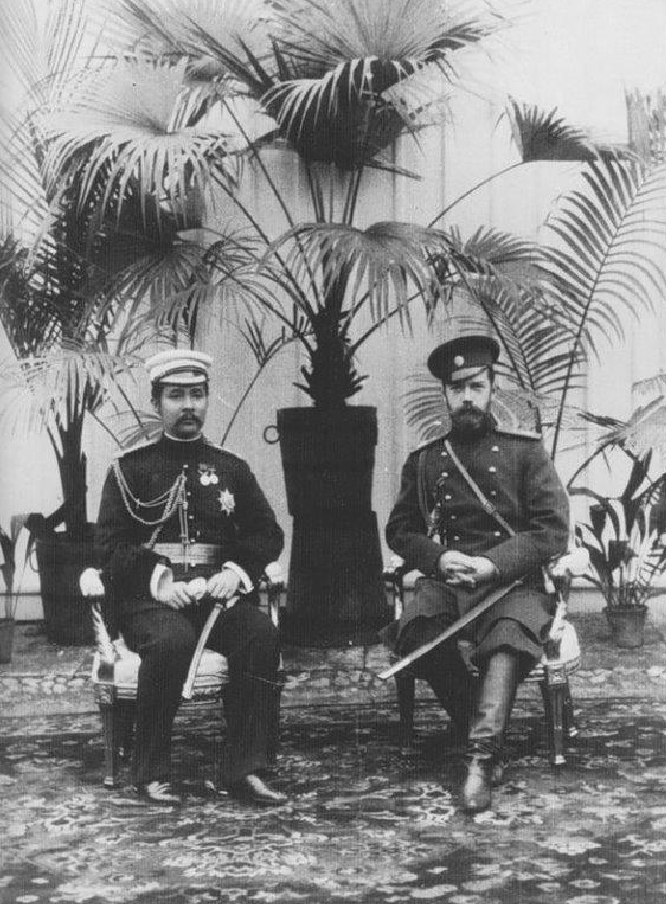
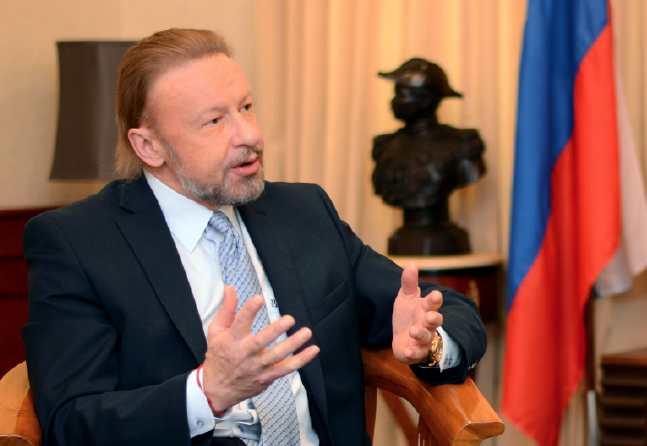
 RSS Feed
RSS Feed
















